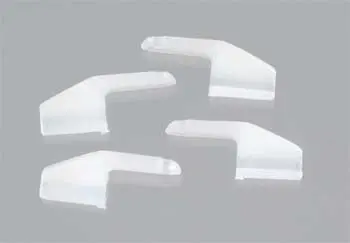PowerBox iGyro 3xtra
Helppo ohjelmoida 3 akselinen iGyro.
Headinhold ja Normal mode.
Käyttöohje ENG
PowerBox iGyro 3xtra
The iGyro 3xtra starts the second generation of the iGyro family.
- Extremely accurate triple-axis MEMS sensor
- New regulatory algorithm for fixed-wing model aircraft with improved performance
- Optional GPS-controlled speed compensation
- Freely selectable orientation in the model
- Automatic detection of orientation in the model
- Ultra-simple set-up procedure
- Adjustment of gain on individual axes without additional devices
- Delta and V-tail mixers accurately detected, including differential travels
- Exact separation of control inputs when mixed inputs are in use
- Flap mixer can be superimposed without affecting gyro performance
- Gain adjustment at the transmitter
- Selectable Attitude Assist function for precise gyro regulation
- Two ranges selectable from the transmitter for different gyro functions
- Selectable five-stage gyro characteristics
- User-variable stick priority
- User-variable lock-in feel
- Input and output with PWM signals
- Fine-tuning via USB or BlueCom and mobile telephone
- Can be updated using the PowerBox USB interface adapter
- Robust aluminium case
Operating voltage: 4.0 - 9.0V
Current drain Power-on state: 40mA
Maximum load current: 20A
Signal input: PWM
Servo sockets: 5
Servo signal resolution: 0,5us
Gyro regulation: Heading- and Normalmode
Gyro sensor type: MEMS
Number of sensor axes: 3
Dimensions: 43 x 30 x 15mm
Weight: 36g including 6 Patchleads
Temperature range: -30°C to +75°C
The iGyro 3xtra starts the second generation of the iGyro family. The new iGyro 3xtraboasts a completely revised regulatory algorithm and set-up procedure, expanded features and enormously enhanced performance, making it the new “State of the Art”.
In contrast to its predecessor - the 3e - the new iGyro no longer incorporates delta and V-tail mixers. Instead the iGyro has a new, simple learning process enabling it to detect all servo mixer combinations, which can even include differential and unequal travels. The user simply sets up delta control surfaces, V-tails, flaperons and tailerons at the transmitter in the usual way. A sophisticated three-dimensional algorithm then divides up the control commands again into aileron, elevator and rudder for all five inputs individually. This method ensures accurate suppression of the individual axes when control commands are given, or when the heading function is in use.
Another significant innovation is the learning process for the installed position of the gyro: this simply involves movements of the model itself. At the same time the procedure also defines the directions of effect in the iGyro. In the past many pilots have been unsure whether they have actually set the direction of effect correctly, but this doubt is now eliminated.
If you are at the flying field and don’t have a smartphone with BlueCom Adapter or a laptop with USB Interface Adapter to hand, you can very easily adjust the gyro’s gain for each axis individually and accurately using the transmitter sticks - without any additional equipment at all!
The hardware has also been subtly improved: the unit now features comprehensive ESD protection to provide a complete shield against static charge problems in the model.
Supplementary features such as gyro characteristics, stick priority and lock-in feel also give experts the means to customise the iGyro 3xtra to their exact personal requirements.















